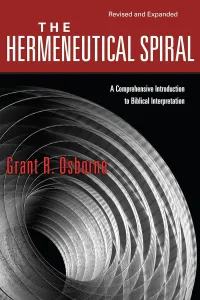The Premise
- The Christian view of Yahweh which entails a triune model, one being in three persons, is an accurate representation of a monotheistic God.
- or the corollary, that Jesus or the Holy Spirit are divine.
I won’t describe the details leading to the Muslim interpretation. It is somewhat convoluted. Here is a distillation of the fallacies:
- In the early days, there was confusion among Muslim scholars. They were unable to read the Gospels in the original Greek. They only had access to Syriac and Arabic versions. They took the Syriac (paraquat) and/or the Arabic (faraquet) to equate to Muhammad’s name. They then projected the following idea. The Christians had not translated it with prejudice. So, Muhammad got no consideration.
- By the nineteenth century, the fallacy morphed. There were now ample Muslim scholars who could read Greek. They decided [for no good reason] that Christians altered the text. The Greek word (paraclete) replaced the original (periklutos). Paraclete translates to “helper or advisor.” Periklutos translates to “exalted one.” This served to discredit Muhammad in the mind of Muslims.
- It need hardly be said that the word περικλυτος (Periklutos) never occurs in either the Greek New Testament or the Greek translation of the Old Testament (Septuagint).[1]
The Rebuttal
And I will ask the Father, and he will give you another Helper, to be with you forever, even the Spirit of truth, whom the world cannot receive because it neither sees him nor knows him. You know him, for he dwells with you and will be in you. (John 14:16-17, emphasis mine)
These things I have spoken to you while I am still with you. But the Helper, the Holy Spirit, whom the Father will send in my name, he will teach you all things and bring to your remembrance all that I have said to you. (John 14:25-26, emphasis mine).
But when the Helper comes, whom I will send to you from the Father, the Spirit of truth, who proceeds from the Father, he will bear witness about me. And you also will bear witness, because you have been with me from the beginning. (John 15:26-27, Emphasis mine).
Nevertheless, I tell you the truth: it is to your advantage that I go away, for if I do not go away, the Helper will not come to you. But if I go, I will send him to you. And when he comes, he will convict the world concerning sin and righteousness and judgment: concerning sin, because they do not believe in me; concerning righteousness, because I go to the Father, and you will see me no longer; concerning judgment, because the ruler of this world is judged. (John 16:7-11, Emphasis mine).
What We Learn
- Jesus is instructing his disciples, preparing them for being without him.
- This is a deliberate act from God.
- Jesus requested the gift.
- The helper is unique to believers (the world cannot know him).
- He is supernatural (spirit) but personal (him, not it).
- He is even more immanent than Jesus because he will indwell the believer.
- He is holy (the Holy Spirit). He is without sin.
- He brings to mind and causes us to remember all that Jesus said.
- That makes the magnification of Jesus the primary task of the Holy Spirit.
- He bears witness to Jesus.
- He is the spirit (essence) of truth.
- He proceeds from The Father and is of the same essence as the Father.
- He cannot come unless Jesus leaves this world.
- He will convict the world about sin because of unbelief in Jesus.
- He will convict the world of righteousness because Jesus enters the Father’s presence.
- He will convict the world about judgment because it comes to Satan.
Conclusion
In this newly revised and expanded edition, Grant Osborne provides seminary students and working pastors with the full set of tools they need to move from sound exegesis to the development of biblical and systematic theologies and to the preparation of sound, biblical sermons.
Osborne contends that hermeneutics is a spiral from text to context–a movement between the horizon of the text and the horizon of the reader that spirals nearer and nearer toward the intended meaning of the text and its significance for today.
Well-established as the standard evangelical work in the field since its first publication in 1991, The Hermeneutical Spiral has been updated to meet the needs of a new generation of students and pastors. General revisions have been made throughout, new chapters have been added on Old Testament law and the use of the Old Testament in the New, and the bibliography has been thoroughly updated.
A 1993 Christianity Today Critics’ Choice Award winner in theology and biblical studies.

Logos Bible Software
The Logos Bible Study app is a powerful Bible study and sermon prep platform. It allows you to study Scripture, commentaries, devotionals, Bible dictionaries, and more from your computer, tablet, or phone. If you want to know the Creator of the Universe intimately, you want this app.

Elevated Faith
Are you looking for apparel or swag? We picked Elevated Faith because of the diversity of their offerings. They offer some great ideas for gifts for others and treats for yourself.












